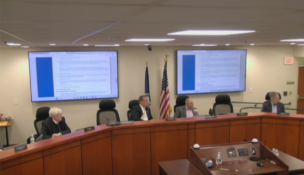Bill to ‘ban the box’ on job forms fails
Virginia Business //February 12, 2015//
A bill to remove the requirement to indicate a criminal record on government employment applications died in a House subcommittee this week.
SB 1017 passed the Senate last week on a 21-17 vote but was killed on its first stop in the House of Delegates. The “ban the box” bill, introduced by Sen. Rosalyn Dance, D-Petersburg, would have removed the box from applications that prospective employees must check if they have been convicted of a crime. It would have applied only to state agencies.
The measure was considered Wednesday by the Civil Law Subcommittee of the House Courts of Justice Committee. It died on a non-recorded voice vote to “gently” lay the bill on the table.
Del. Betsy Carr, D-Richmond, had sponsored the House version of the bill (HB 1680). In January, it also failed in the Civil Law Subcommittee.
Even though they tabled SB 1017, subcommittee members expressed broad support for the idea behind the legislation. Republican Dels. Greg Habeeb of Salem, Manoli Loupassi of Richmond and Randall Minchew of Leesburg pledged to support a revised version of the bill next year.
“We had Delegate Carr’s bill earlier. I think this subcommittee actually expressed a lot of interest in trying to find a way to help with re-entry issues,” said Habeeb, chairman of the subcommittee. “I expressed concern with this just because of the burden on employers and the potential liability employers are going to have.”
Dance disagreed, saying the bill would benefit job applicants and society.
“I don’t see it as an added burden,” she said. “I see it as an opportunity to put some more people into jobs, paying taxes.”
Richard Walker, the CEO and founder of Bridging the Gap in Virginia, a nonprofit organization that helps ex-offenders reintegrate into society, spoke in favor of the bill.
“I work with individuals on a daily basis who have this challenge,” said Walker, who holds workshops on employment for former felons.
“The title of my workshop is ‘Overcoming Barriers.’ The biggest barrier is sitting in front of a potential employer, seeking to get a position. A lot of these [people], because the box is checked there, they don’t even reach that potential employer.”
Walker, an ex-offender, said he had benefitted from an employer disregarding his criminal history and giving him a job.
“I am a product. I have been sanctioned, licensed and secured by the State of Virginia to perform mental health services,” Walker said. “We’re asking that the State of Virginia would rectify this to allow individuals to have that opportunity to at least be interviewed, to at least be one-on-one with that potential employer state agency, to indicate whether or not they are able to do that skill.”
Loupassi shared Habeeb’s concern about the risk of hiring an applicant with a criminal history.
“I think that the primary reason why employers don’t take a chance with people who come out and are felons is because they’re scared they’re going to get sued for negligent hiring,” Loupassi said. “Even if you ban the box, it doesn’t matter, because sooner or later, if they find out that the guy’s got a felony, it won’t matter – their employment plan says, ‘You don’t get a job.’”
Del. Jennifer McClellan, D-Richmond, noted that the bill would provide only a starting point in the job application process. It would afford applicants the chance for an interview without their felony immediately disqualifying them, she said.
“This is only at the entry level – getting your foot in the door,” said McClellan, a member of the subcommittee. “The point here is that … when you have that box on an application and it is checked, no matter who you are, it’s a scarlet letter; you’re not even getting in.”
Habeeb and other subcommittee maintained their concerns about the legislation, ultimately voting to kill it for the session.
“We ended up laying Delegate Carr’s bill on the table with a genuine promise from a lot of us that we want to actually find a solution to this issue,” Habeeb said. “My inclination on your bill is the same as it was on Delegate Carr’s bill.”
Minchew agreed, moving to “gently” lay the bill on the table. He offered to help craft new language in hopes of passing such a law in 2016.
T


















